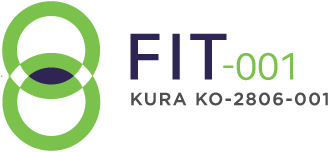1. Kumar CC. Genetic abnormalities and challenges in the treatment of acute myeloid leukemia. Genes Cancer. 2011;2(2):95-107. 2. Klossowski S, Miao H, Kempinska K, et al. Menin inhibitor MI-3454 induces remission in MLL1-rearranged and NPM1-mutated models of leukemia. J Clin Invest. 2020;130(2):981-997. 3. Prata PH, Bally C, Prebet T, et al. NPM1 mutation is not associated with prolonged complete remission in acute myeloid leukemia patients treated with hypomethylating agents. Haematologica. 2018;103(10):e455-e457. 4. Angenendt L, Röllig C, Montesinos P, et al. Chromosomal abnormalities and prognosis in NPM1-mutated acute myeloid leukemia: a pooled analysis of individual patient data from nine international cohorts. J Clin Oncol. 2019;37(29):2632-2642. 5. Venugopal S, Konopleva M, DiNardo CD, et al. NPM1 mutations do not retain a favorable prognostic impact in adults with advanced relapsed or refractory (R/R) acute myeloid leukemia (AML). Poster presented at: 2021 ASH Meeting on Hematologic Malignancies; September 2-3, 2021; virtual. Abstract 2287. 6. Döhner H, Estey E, Grimwade D, et al. Diagnosis and management of AML in adults: 2017 ELN recommendations from an international expert panel. Blood. 2017;129(4):424-447. 7. Issa GC, Zarka J, Sasaki K, et al. Predictors of outcomes in adults with acute myeloid leukemia and KMT2A rearrangements. Blood Cancer J. 2021;11(9):162. 8. Ridge JA, Glisson BS, Lango MN. Head and neck tumors. February 18, 2011. Accessed April 4, 2023. https://www.cancernetwork.com/view/head-and-neck-tumors 9. Brockstein BE, Vokes EE. Treatment of metastatic and recurrent head and neck cancer. UpToDate. Updated February 27, 2023. Accessed April 4, 2023. https://www.uptodate.com/contents/treatment-of-metastatic-and-recurrent-head-and-neck-cancer/print 10. Bauml J, Seiwert TY, Pfister DG, et al. Pembrolizumab for platinum- and cetuximab-refractory head and neck cancer: results from a single-arm, phase II study. J Clin Oncol. 2017;35(14):1542-1549. 11. Ferris RL, Blumenschein G Jr, Fayette J, et al. Nivolumab for recurrent squamous-cell carcinoma of the head and neck. N Engl J Med. 2016;375(19):1856-1867. 12. Dilmaghani NA, Safaroghli-Azar A, Pourbagheri-Sigaroodi A, Bashash D. The PI3K/Akt/mTORC signaling axis in head and neck squamous cell carcinoma: possibilities for therapeutic interventions either as single agents or in combination with conventional therapies. IUBMB Life. 2021;73(4):618-642.
















Dr. Erba discusses the KOMET-001 Phase 1b safety and tolerability data of ziftomenib, a menin inhibitor, for patients with R/R NPM1-m AML
/in Erba, videosDr. Erba offers insight into the KOMET-007 Phase 1 trial and rationale for investigating ziftomenib in combination with standards of care for the treatment of patients with newly diagnosed or R/R NPM1-m or KMT2A-r AML
/in Erba, videosDr. Erba explains the different combinations KOMET-008 will evaluate and how it differs from KOMET-007
/in Erba, videos“Project Optimus encourages optimal biological dosing rather than maximally tolerated dosing.” — Harry Erba, MD, PhD
/in Erba, videosDr. Erba provides an overview of the KOMET clinical trial program
/in Erba, videos